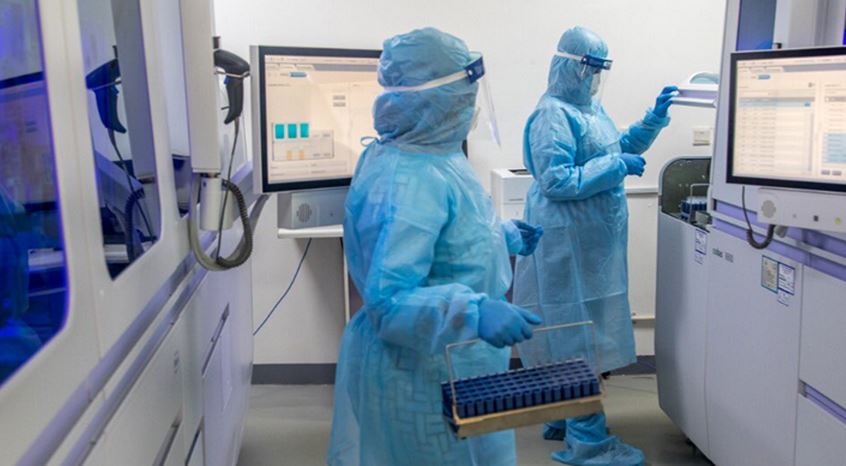COVID-19: Nigeria Disease Control Agency Says Negative Result No Longer Required To Discharge Patients
Posted by Samuel on Fri 05th Jun, 2020 - tori.ngFile photo
A negative laboratory test result of COVID-19 patients is no longer required for such patients to be discharged, a Nigerian official has said.
The Director-General of the Nigeria Centre for Disease Control (NCDC), Chikwe Ihekweazu, made this known at the daily Presidential Task Force (PTF) on COVID-19 briefing on Thursday.
Mr Ihekweazu said the new discharge criteria for COVID-19 Infection indicates that patients can be free 14 days after the first positive result.
“There have been new science emerging about the duration of infectivity of individual patients. It led to the WHO issuing new clinical guidelines.
“Symptomatic patients would thereby be discharged 10 days after symptom onset, plus at least 3 days without symptoms. If your symptoms last for longer, we will wait for longer managing you supportively.
“If you are asymptomatic, you can be discharged 14 days after your first positive result. A negative laboratory test is no longer required to discharge a COVID-19 patient,” he said.
According to the NCDC DG, the new guideline is based on new data from Singapore “that RNA detected beyond 10 days is no longer infectious as no viable virus is grown by viral culture.”
At the initial stage of the virus in Nigeria, the major requirement for discharging patients was testing negative to COVID-19 twice.
The NCDC boss later said the agency had switched to testing COVID-19 patients only once as against its earlier stance on double testing before discharge.
This, he said is to enable the decongestion of some isolation centres in the country.
Mr Ihekweazu had earlier said Nigeria may consider discharging COVID-19 patients earlier than their required treatment and isolation period, even though they are still positive.
The agency also said it was considering home treatment for patients also as a means of decongesting the treatment centres.
’Self-isolation’
Meanwhile, Mr Ihekweazu said discharged patients are to continue self-isolating at home one week after discharge.
“At that point, you really don’t need more clinical interventions, even at home; you just need time to recover.
”It is just like you recover from any other illness. You don’t need any special intervention once you have been discharged,” he said.
Overwhelmed
There have been indications that treatment centres across the country have become overwhelmed by the number of persons requiring institutional isolation and treatment.
Mr Ihekweazu earlier said Nigeria lacked adequate bed spaces to accommodate COVID-19 patients in isolation centres across states.
He said the federal government was considering the option of home-care treatment for COVID-19 patients.
The Minister of Health, Osagie Ehanire, at the daily PTF briefing said schools and hotels may be used as isolation centres for COVID-19 patients if the need arises.
Mr Ehanire said Nigeria currently has over 112 treatment and isolation centres in the 35 states and FCT with just over 5,000 beds. The number of comfirmed positive cases has shot over 11,000.












































